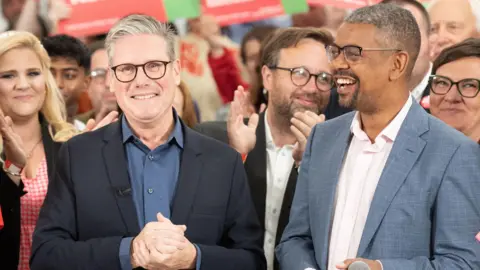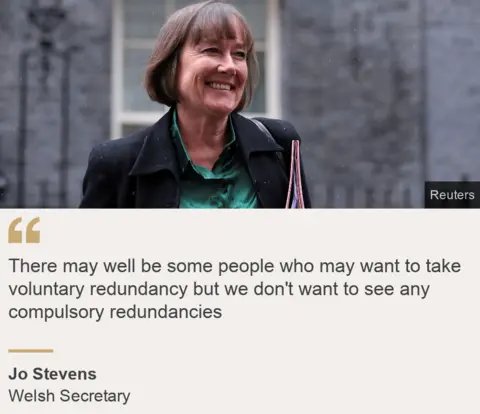By Mark Palmer, BBC News
 PA Media
PA MediaSir Keir Starmer will visit Wales on Monday for the first time since becoming prime minister, with talks focusing on steel job cuts.
He will meet First Minister Vaughan Gething at the Senedd amid concern for employees at the giant Tata steelworks in Port Talbot, where thousands of people are facing redundancy.
Sir Keir’s new Labour government has said there is “a better deal available” with Tata but warned newer technologies would employ fewer people.
Welsh Secretary Jo Stevens said his visit was about having “respectful, close working relationships” with governments across the UK.
Ahead of the visit, the prime minister said: “Wales has enormous untapped potential ready to be unleashed.
“Working in lockstep with the Welsh government and Vaughan [Gething], my government will place the people and communities of Wales front and centre as we move towards a decade of national renewal.
“That means turning the page on years of economic hardship, towards genuine shared prosperity for working people, so they see and feel real tangible change in their lives.”
 Reuters
ReutersIn a statement, Tata Steel’s UK chief executive Rajesh Nair has congratulated Sir Keir on his victory and said he looked forward “to working with the new government on our shared goals of growing the production of green steel in the UK, and building a positive operating environment for this critical industry”.
Mr Nair added: “In the coming days and weeks we will be engaging with new ministers over our ambitious plans to invest in and transform Port Talbot with electric arc furnace steelmaking, and to supporting our workers through this necessary but difficult transition.”
Ms Stevens said Labour wanted more steel made in Wales and the UK.
“There is certainly a role for Tata to play in that and I want Welsh steel workers to be right at the front of that,” she told BBC Wales.
“There may well be some people who may want to take voluntary redundancy, but we don’t want to see any compulsory redundancies.”
Referring to Sir Keir’s visit to Wales, she said Labour’s landslide in the general election had created a “real mandate here for what we want to see, which is a cohesive United Kingdom with respectful, close working relationships between the first ministers, the deputy first ministers, ministers in Northern Ireland, and the prime minister”.

